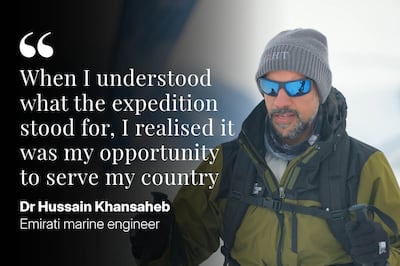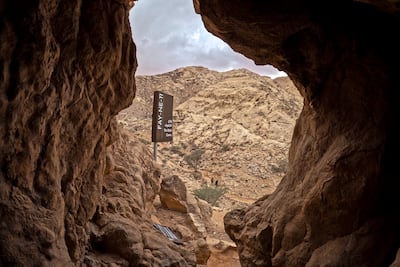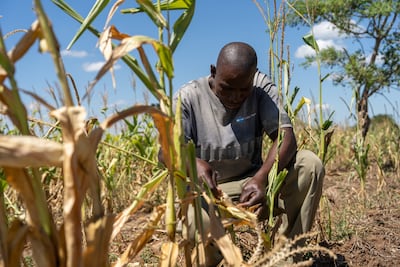Many years ago, when I travelled and people asked where I was from, I used to say “Saudi Arabia”. Not because it was true — but because it was easier. Explaining where the UAE was became tiring: “Next to Iran, near Oman, on the Arabian Gulf.” At one point, I even started carrying a map.
When I visited the Galapagos Islands in 2018, I was the first Emirati most had ever met.
Today, those conversations sound very different. When I travel and say I’m from Abu Dhabi — not Dubai, which I used to default to — I hear things like “I lived there, they were the best years of my life” or “my friend works there and keeps telling me to visit”. And then there’s my favourite moment: when I ask “have you heard of Abu Dhabi?” and they smile as they answer: “Of course, who hasn’t?”
So discovering that our young nation — just over 50 years old — now has a scientific presence in the polar regions, in the furthest and most unforgiving places on Earth, stopped me in my tracks. It left me with an overwhelming sense of pride.
In this month’s edition of Emirati, I speak to those shaping the Emirates Polar Programme about why the UAE chose science as its pathway to the poles. From the treaties that govern Antarctica to research partnerships across the Arctic and the Hindu Kush–Himalayan “Third Pole”, the conversations reveal how climate leadership is being defined through long-term thinking, collaboration and responsibility — far from the spotlight, but with global consequences.
The UAE officially has a presence in the furthest regions of the Earth!
Thank you for reading.
Inside the Emirates Polar Programme and how it is shaping the world of tomorrow
The UAE is fast establishing itself as a leading player in the global space race - but it is also making significant strides in a mission to explore some of the harshest environments back on Earth.
Central to this quest is the Emirates Polar Programme, which puts Emirati scientists at the forefront of international research in Antarctica and the Arctic.
As President Sheikh Mohamed said at the programme's launch in 2023, the polar regions are sentinels of climate change, biodiversity and human resilience.

The need to protect them has never been more critical. They are experiencing the most rapid rates of warming on the planet, with far-reaching consequences for natural ecosystems and human activity worldwide.
The Arctic is not a continent, but a frozen ocean capped by ice that expands and contracts with the seasons, bordered by eight sovereign countries.
Antarctica, by contrast, is. Much of it sits more than 500 metres above sea level, making it both the coldest and highest continent on the planet, where temperatures can fall below -60°C in winter.
Did you know?
Two Emirati researchers, Ahmed Al Kaabi and Badr Al Ameri, helped to install two meteorological and seismic monitoring stations to boost weather monitoring during an Antarctic mission that concluded in January. Read more here
Stepping back in time at Sharjah's historic world heritage site

An ancient desert landscape in Sharjah recognised by the UN has been hailed as an example of “human resilience” after sustaining life as civilisation was gripped by an ice age.
The Faya palaeolandscape won Unesco World Heritage status in July and includes one of the oldest uninterrupted records of archaic human habitation, dating back more than 210,000 years.
The National took a tour in the company of experts who have told of its significance not only to the story of the Gulf region, but the wider world.
“This is one of the oldest sites of human settlement outside Africa,” said Eisa Yousif, director general of the Sharjah Archaeology Authority.
“It shows not only early dispersal, but sustained human presence, even during dry periods. That continuity is what makes the site exceptional.”
UAE to use AI to support millions of farmers in climate fight

The UAE this month set out ambitious plans to use artificial intelligence to deliver a critical lifeline to millions of farmers bearing the brunt of the growing threat posed by climate change.
Abu Dhabi's AI Ecosystem for Global Agriculture Development will seek to use advanced technology to help farmers adapt quickly to extreme weather and give them access to the tools needed to cultivate a better future for the communities they support.
The high-tech strategy is the result of a major international collaboration between the UAE Presidential Court and the Gates Foundation. Its launch will build on the $200 million UAE-Gates Foundation fund announced at Cop28 in Dubai, which aims to accelerate agricultural innovation.
The announcement was made in the presence of Mariam Almheiri, head of the International Affairs Office at the UAE Presidential Court, and Bill Gates, chairman of the Gates Foundation.
Four landmark initiatives will serve as the foundation of the new ecosystem, including an agriculture and AI centre at the Mohamed bin Zayed University of Artificial Intelligence and the Agricultural Innovation Mechanism for Scale (Aim for Scale), under which an advanced weather warning system for farmers is already achieving success.
The National produces a variety of newsletters across an array of subjects. You can sign up here. To receive The Editor's Briefing, our Editor-in-Chief's weekly newsletter – exclusive to registered readers – that rounds up the top stories of the week, sign up here.

